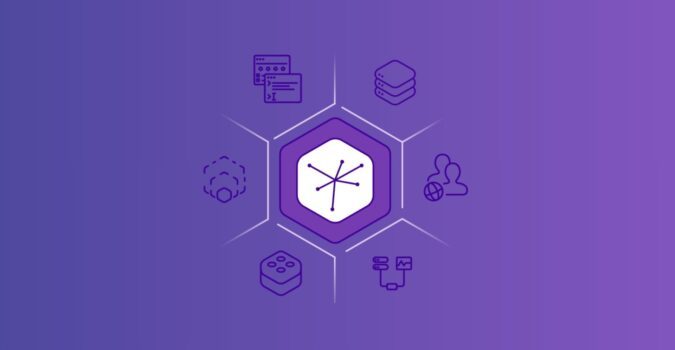Unlocking Autonomy with AI Agents
The way we build and interact with software is fundamentally changing. Traditional automation tools follow scripts and workflows. But a new generation of systems – AI agents – are designed to think, reason, and act with autonomy.
In this beginner’s guide, we’ll break down what an AI agent is, how it works, and why it’s more than just a smarter chatbot. Whether you’re exploring agentic AI for your enterprise or looking for the best AI agent platform to experiment with, this guide will help you understand the potential behind this powerful shift in technology.
What Is an AI Agent?
If you’ve been wondering what an AI agent is and how it fits into your digital strategy, you’re not alone. Understanding this foundational concept is the first step toward unlocking the broader capabilities of modern enterprise AI.
An AI agent is a system designed to act autonomously in pursuit of a goal. Unlike traditional software programs that follow predefined instructions, AI agents can interpret information, make decisions, and take actions without human intervention.
What makes AI agents different is their ability to operate independently, learn from data, and adapt to changing conditions. These agents don’t just respond–they reason, plan, and collaborate.
Think of them as digital teammates. Whether navigating a sales process, assisting customers, or optimizing workflows, AI agents are engineered to drive outcomes, not just complete tasks. From automating routine back-office tasks to orchestrating complex decision-making processes, they’re ushering in a new model of enterprise intelligence.
How AI Agents Work
AI agents operate on a loop of sensing, reasoning, and acting. Here’s how the core cycle typically functions:
- Sense: The agent gathers information from its environment (e.g., user input, Application Programming Interfaces (APIs), databases).
- Reason: It analyzes the information, draws conclusions, and plans a course of action.
- Act: It executes the necessary steps, interacting with systems, tools, or people.
More advanced agents integrate with orchestration frameworks like React, LangChain, or AutoGen. These tools allow them to:
- Chain multiple tools and APIs
- Store and recall memory across sessions
- Collaborate with other agents or humans
- Analyze outcomes and improve performance
This enables AI agents to go far beyond surface-level automation – they can complete multi-step workflows, respond dynamically to new inputs, and continuously improve through reflection and feedback loops.
Types of AI Agents
AI agents and agentic AI come in different forms depending on their design and use case. From simple rule-based systems to complex learning models, each type offers unique capabilities aligned to specific business needs. Understanding these categories can help you match the right kind of agent to your operational goals:
Reactive Agents
These agents respond to immediate inputs with predefined actions. They don’t retain memory or plan ahead, but they’re fast and effective for simple, repetitive tasks. Think of these as basic bots that operate based on “if-this-then-that” logic.
Goal-Based Agents
These agents work toward a specific objective. They evaluate different paths and adjust their actions to reach a desired outcome. Most enterprise-grade agents fall into this category, supporting goals like increasing sales conversion, resolving support tickets, or reducing operational bottlenecks.
Utility-Based Agents
Utility-based agents operate with a cost-benefit mindset. They evaluate the utility (or benefit) of possible actions and pursue the ones with the highest expected value. This makes them ideal for scenarios where trade-offs need to be made, like optimizing delivery time vs. cost in logistics.
Learning Agents
Learning agents improve performance over time by ingesting feedback and applying machine learning to adjust behavior. These agents thrive in dynamic environments where past experience can inform better decisions, such as fraud detection or recommendation systems.
Why Businesses Are Turning to Agentic AI
The shift toward agentic AI is driven by the need for systems that are more adaptable, autonomous, and outcome-focused. Businesses are adopting agentic AI to:
- Automate multi-step workflows across sales, service, and operations
- Enhance customer experiences with personalized, proactive support
- Improve efficiency and accuracy with agents that learn and adapt
- Drive innovation by freeing teams to focus on strategy instead of manual tasks
In short, agentic AI gives businesses a new lever to pull, not just to reduce costs, but to reimagine how work gets done. It’s a strategic investment that aligns people, processes, and platforms around intelligent automation.
Choosing the Best AI Agent Platform
Finding the best AI agent platform is crucial to building scalable, secure, and successful agent-based systems. Whether you’re experimenting or scaling across departments, platform choice makes or breaks implementation.
Not all AI agent platforms are created equal. When evaluating options, consider:
- Framework Flexibility: Does it support goal-driven reasoning, planning, and tool use?
- Integration Capabilities: Can it connect with your CRM, databases, APIs, or internal tools?
- Governance and Security: Does it provide control, oversight, and auditability?
- Ease of Deployment: Is it accessible for teams without deep AI expertise?
Platforms like Salesforce Agentforce offer an enterprise-ready environment that integrates AI agents directly into business systems, unlocking value without needing to overhaul existing infrastructure. It enables teams to build and scale responsibly, with transparency and governance in place from day one.
Getting Started with AI Agents
If you’re new to building AI agents, start small and scale intentionally:
- Identify a high-impact, repetitive process that’s rules-based and has clear outcomes.
- Choose a platform that fits your organization’s tech ecosystem and team skill level.
- Define measurable goals so you can benchmark and optimize performance.
- Run pilots and iterate based on feedback, with clear escalation paths and monitoring.
It’s also important to establish human-in-the-loop safeguards, especially early on, so your teams build confidence in the AI while maintaining oversight.
AI Agents in the Real World
AI agents represent a new frontier in digital operations. They’re not just better bots – they’re intelligent systems that can reason, plan, and act with autonomy.
As agentic AI becomes more accessible, every business has the opportunity to build smarter processes, elevate customer experiences, and unlock new growth.
From simple workflows to complex decision-making, the best AI agent isn’t the one that checks a box – it’s the one that drives your business forward.
Now is the time to explore. But before you build, it helps to see what real-world impact looks like. Here are a few examples of AI agents driving change today:
AI Agents in Retail
Retailers use AI agents to analyze customer behavior in real time, to personalize recommendations, and to automate restocking based on demand forecasts. These agents improve customer experience and optimize inventory management.
AI Agents in Healthcare
Hospitals and providers are deploying AI agents to schedule appointments, process medical records, and even assist with diagnostic support by reviewing symptoms and historical data. This reduces administrative burden and speeds up patient care.
AI Agents in Finance
Financial institutions use agents for fraud detection, automating compliance checks, and delivering customer service. Agents learn from patterns and flag anomalies faster than human teams ever could.
These examples aren’t aspirational–they’re operational. And they showcase how agentic AI is already delivering bottom-line results. Read about how we helped a finance institution leverage the power of AI agents.
The agent you build today could become the strategic engine of tomorrow.
Tomorrow’s AI Agent Ecosystem
The future of AI agents is evolving rapidly, and what we’re seeing now is only the beginning. Here’s where AI agents are headed:
Collaborative Multi-Agent Systems
Expect to see more networks of AI agents working together to accomplish goals. These systems will assign roles, share knowledge, and adapt dynamically, creating a more intelligent and distributed digital workforce.
Natural Language Interfaces
As LLMs improve, AI agents will become easier to interact with using plain language. This will empower business users to deploy and manage agents without needing technical skills.
Agent Marketplaces
We’ll likely see platforms emerge where companies can buy, sell, or share pre-trained agents designed for specific tasks, similar to app stores, but for autonomous digital workers.
Deeper Enterprise Integration
The next generation of platforms will focus on seamless integration between AI agents and enterprise data systems, processes, and compliance frameworks.
The organizations that stay ahead of these trends won’t just automate faster. They’ll build more intelligent, resilient, and competitive operations.
The Bottom Line on AI Agents
As you now understand what an AI agent is, how it works, and how it compares across platforms, you can better evaluate its role in your enterprise.
As businesses strive to become more adaptive, responsive, and intelligent, agentic AI will play a central role in reshaping how work gets done.
Whether you’re looking to automate processes, improve customer experience, or empower your team with smarter tools, AI agents offer a path to higher efficiency and greater impact
Curious how AI agents could transform your business? Connect with our team to get started.
Crossposted on Medium.



